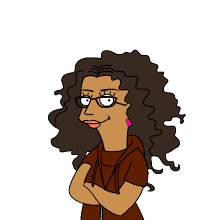Avram Hairaqi died yesterday. Hairaqi was not his last name, but that’s the name everyone knew him by. For many years I didn’t even know he had a family name. Hairaqi means The Iraqi. Israelis of that generation did that a lot, name people by their place of origin. And in my mom’s ‘hevre’ (a Hebrew word describing a group of friends, and in this case a regular group of friends who meet at least once a week to play cards, crack nuts and seeds, eat fresh watermelon with salted cheese, drink black coffee or beer and chat) he was an anomaly. Most of my mom’s friends growing up were Yemenis or her siblings – who were, obviously, also Yemenis. And there was Avram Hairaqi, often just called ‘Hairaqi’. His wife, Shosi was known as ‘hairaqit,’ and together they were ‘haIraqim.’ When he called, my mom’s cell phone read: ‘The Iraqi’. It was also a way to distinguish him from another Avram, my mom’s brother.
Avram Hairaqi was born in Baghdad 68 years ago, and came to Israel as at 14 with his family. He met my mother in Sharia – the Yemeni neighbourhood where she grew up – and fell madly in love with her. She was two years younger than him and loved singing and playing the flute. Her father owned the first radio in the neighbourhood. She was beautiful, had almond shaped eyes and olive skin. “He wrote me such lovely letters.” My mom said, “But he was so shy! For the longest time he wouldn’t speak to me!” The teen crush had eventually fizzled and they became best friends. They stayed best friends for the next fifty years, as they both married their sweethearts – my mom a Yemeni and Avram an Iraqi – and raised families.
In a country where men are often loud and short tempered and like to call it passion and blame it on geography, Avram Hairaqi stood out in his serene and peaceful demeanor. He was a sweet man, soft spoken and good natured. Sometimes, when my mom hosted the card game in our living room, I could hear heated arguments erupt and men in the ‘hevre’ raising voices, but never Avram Hairaqi. He would smile forgivingly when he saw me peeking from the top of the stairs. He always showed in interest in my siblings and me and was a good friend to my parents. The Iraqim were also a great support to my family after my father’s death.
I wasn’t at the funeral. He died at 2 and by 7 they already buried him. Jews don’t waste time bringing a soul closer to home. It’s considered disrespectful to the dead to keep him in limbo. I was working at the time and had to miss it. I want to pay him my respects, and if I could say something to him I’d thank him for being the one person in my teenage years to keep telling me that I was beautiful. Correction: he never told me that to my face, just to my mom while I was in the room, as if it was a compliment to her, more than it was to me. I was in that awkward phase, long limbed and with a permanent miserable expression. I hated my looks with great passion. I didn’t have a boyfriend, rarely dated and made a habit of developing ridiculous crushes on boys who didn’t know I existed. My taste evolved from blond-prom-king surfer-types in junior high to brown-skinned-skateboarder-hippy-bad-boys by the time I reached high school. Both types always ended up going for girls who were much prettier than I was. I remember writing in my diary that the only person apart from my mom and my two best friends who think I’m beautiful (all clearly biased) is Avram Hairaqi. ‘He must be out of his mind,’ I concluded. The thing is: I could tell he really meant it. He saw through the slouched gate and clumsiness, the bad skin and chewed down nails.
It’s not much of a eulogy, I know. I could probably be accused of being self centred at a time of such grief. It might not seem like much, but this is what I remember, and for an insecure 16 year old girl this was a matter of top priority. That sweet man made a huge difference to my self esteem. I think he would have liked to know that.
Wednesday, March 12, 2008
Subscribe to:
Post Comments (Atom)


No comments:
Post a Comment